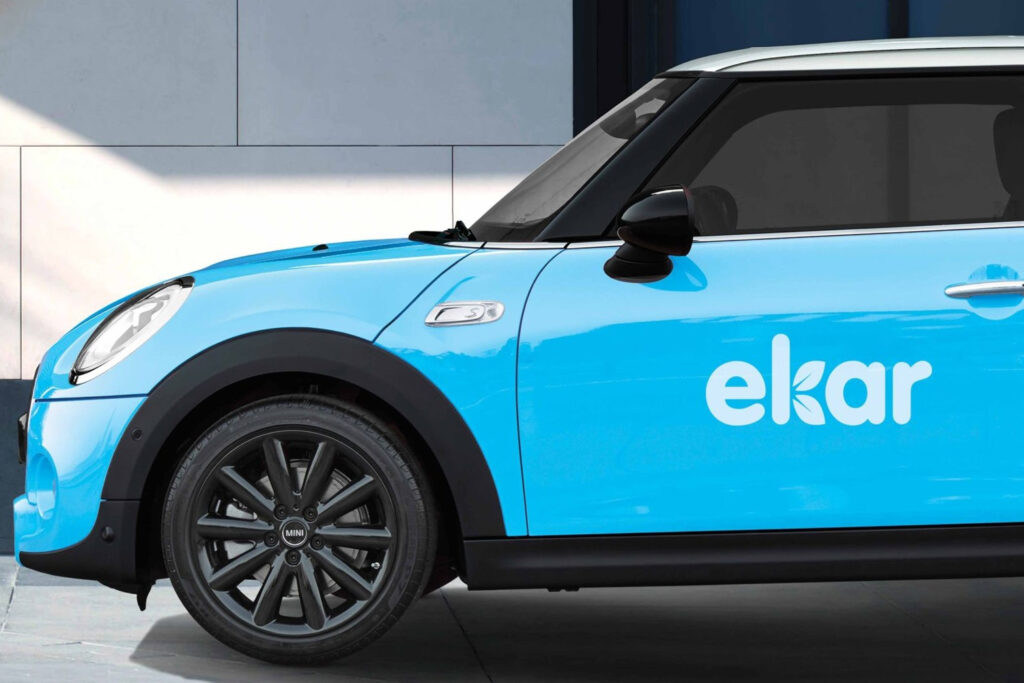- Support:+971 4 3364 840
- Email:[email protected]
- Address:Level 3, A1, Dubai Digital Park, DSO, UAE

Read how Integra has helped ekar, the first and biggest carshare company in the Middle East build a secure, reliable and resilient platform that caters to millions of users and processes data from thousands of on-road vehicles.
ekar became the first official car-sharing business in the Middle East when it launched in 2016. The United Arab Emirates (UAE)-based company gives users on-demand access to a network of thousands of car share, subscription-leasing vehicles, and other mobility options within its self-drive “super app”.
ekar founder Vilhelm Hedberg believes mobility as a service (MaaS) is the key to improving people’s access to transportation while reducing its environmental and social impact. Every car which is shared leads to 10 owned cars coming off the roads.
The company’s vision is that its Mobility OS system will enable car rental and leasing companies to deliver services such as short-term hire and peer-to-peer rentals. ekar’s vision is to radically improve the way people consume transportation. To do that at massive scale means working across the industry and changing the perception of a car from something that you own to something that you use.

The Challenge
The company initially used an off-the-shelf car-sharing platform. This monolithic system provided basic car-sharing functionality and a mobile app, but the company’s development team soon discovered its limitations. ekar’s developers were also spending a lot of time managing its on-premises infrastructure rather than building new product features.
As a young startup, ekar had big ambitions. It wanted to develop a richer product and expand beyond its native UAE base. The company wanted to differentiate itself from the emerging competition with innovative services. And to that end, it was absolutely necessary to build a truly resilient system that can take extraordinary amounts of traffic, as well have the ability to have business continuity in case of an unforeseen disaster.
The Solution
ekar re-designed its entire infrastructure on Amazon Web Services (AWS) with resilience at its core. The company’s approach to resilience encompasses several key principles:
High Availability: ekar leverages multiple AWS Availability Zones (AZs) to ensure high availability of its applications. Critical services are distributed across at least three AZs, allowing the system to continue functioning even if one or two AZs experience issues.
Scalability: The company uses serverless as far as possible and also AWS Auto Scaling to automatically adjust capacity based on traffic demand. This ensures that applications can handle varying loads without performance degradation, maintaining smooth operations during peak times and cost efficiency during low traffic periods.
Fault Tolerance: ekar employs AWS services such as Amazon Route 53 for DNS failover, Amazon RDS for multi-AZ database deployments, and Amazon S3 for durable storage. These services are configured to automatically route traffic and data to healthy resources in case of failures, minimizing downtime and data loss.
Disaster Recovery: The company has implemented a comprehensive disaster recovery plan using AWS services like AWS Backup and AWS Disaster Recovery (DR). Regular backups and data replication to geographically distant regions ensure data integrity and availability even in the event of a catastrophic regional failure. Databases are replicated in real-time to different region, and in case of a disaster, the new infrastructure in the DR region can be bought up within 27 minutes.
Security and Compliance: Security is a paramount concern for ekar. The company uses AWS Identity and Access Management (IAM) for fine-grained access control, AWS Shield for DDoS protection, and AWS Key Management Service (KMS) for data encryption. Additionally, the infrastructure complies with industry standards and regulations, ensuring that client data is protected and audit requirements are met.
Monitoring and Automation: ekar utilizes AWS CloudWatch and AWS CloudTrail for real-time monitoring and logging of infrastructure activities. Automated scripts and AWS Lambda functions handle routine maintenance tasks, incident response, and infrastructure updates, reducing human error and improving operational efficiency.
Cost Management: While resilience is a priority, ekar also emphasizes cost management. The company uses AWS Cost Explorer and AWS Budgets to monitor and optimize spending, ensuring that resilience measures are cost-effective and aligned with business goals.
The Result
By integrating resilience into every layer of its AWS infrastructure, ekar has achieved a robust, scalable, and secure environment that supports the demanding needs of its clients. The company’s proactive approach to infrastructure design has resulted in minimal downtime, quick recovery from incidents, and high levels of customer satisfaction.